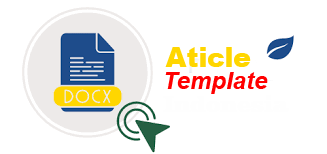Analisis Pengembangan dan Implementasi System E-learning Untuk Meningkatkan pengetahuan Agent Menggunakan Metode ADDIE Model (Study Kasus: PT.Global Infotech Solution)
DOI:
https://doi.org/10.30865/json.v2i3.2920Keywords:
Agent, ADDIE, E-Learning, Moodle, DevelopmentAbstract
The development of e-learning system ini companies is very important in the learning process and training of employees or agents to achieve company goals. Like at PT. Global Infotech solution where the learning process still uses manuals so that it hinders learning because to hold training is quite large ini incurring costs for agents who are outside the region. Therefore companies need an e-learning system to help the employee agent learning process to be more affective. E-learning system have been developed and implemented using the moodle platform, which is one of the learning management system. The development method used is the ADDIE (Analysis, Design, Implementation, Evaluation) model so that it is faster ini developing an e-learning system platform according to user needs in the company. The results of the e-learning system research were assessed through employee agent responses from the learning aspect of 84.75% with a good category, seen from the display aspect of 86.05% with the very good category, seen from the aspect of the e-learning system using the Moodle platform of 80, 32% with a good category, and the last one seen from the material aspect in the e-learning system with an interesting concept of 89.82% with the very good category. So the overall assessment of the quality of the e-learning system as a whole is 85.25 with a good category. With this e-learning system, the learning process will be more efficient in displaying learning information needed by company agents in a web-based form and can be accessed by users online as long as they are connected to the internet.References
P. D. A. N. I. E-learning, M. Moodle, and D. A. N. Vicon, “DEVELOPING AND IMPLEMENTING E-LEARNING USING MOODLE,†vol. 6, no. 1, 2016.
R. Arofah and H. Cahyadi, “Pengembangan Bahan Ajar Berbasis ADDIE Model,†vol. 3, no. 1, pp. 35–43, 2019.
A. Setiawan and Z. A. Trimiarsih, “IMPLEMENTASI E-LEARNING DENGAN PENDEKATAN,†vol. 2012, no. Snati, pp. 15–16, 2012.
R. Laipaka, “Pengembangan dan Implementasi E-Learning pada AMIK JTC Semarang,†pp. 301–306.
I. Permatasari, “Pengaruh E-Learning Sebagai Media Pelatihan dan Pengembangan Terhadap Kinerja Karyawan BCA KCU Tangerang,†vol. 07, pp. 1–8, 2018.
N. Maluku, “IMPLEMENTATION OF E-LEARNING SYSTEM USING THE SOFTWARE MOODLE,†vol. 1, no. September, 2016.
D. K. Widyawati and I. S. Sitanggang, “Analisis Kebutuhan Pengembangan E-Learning Politeknik Negeri Lampung Analysis Of Need For E-Learning Development State Politechnic Of Lampung,†no. September, pp. 292–301, 2017.
Downloads
Published
How to Cite
Issue
Section
License

This work is licensed under a Creative Commons Attribution 4.0 International License
Authors who publish with this journal agree to the following terms:
- Authors retain copyright and grant the journal right of first publication with the work simultaneously licensed under Creative Commons Attribution 4.0 International License that allows others to share the work with an acknowledgment of the work's authorship and initial publication in this journal.
- Authors are able to enter into separate, additional contractual arrangements for the non-exclusive distribution of the journal's published version of the work (e.g., post it to an institutional repository or publish it in a book), with an acknowledgment of its initial publication in this journal.
- Authors are permitted and encouraged to post their work online (e.g., in institutional repositories or on their website) prior to and during the submission process, as it can lead to productive exchanges, as well as earlier and greater citation of published work (Refer to The Effect of Open Access).




